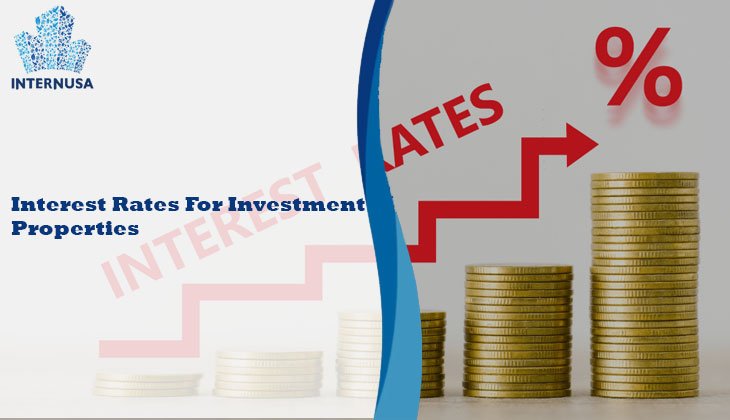Unlocking the Secrets of Interest Rates in Property Investments
So, why are interest rates so crucial? An interest rate is the percentage that a bank or financial institution charges you when you borrow money to buy property. The interest rate doesn’t just determine how much you’ll pay in monthly installments; it also plays a major role in your investment’s profitability.
What Affects Interest Rates?
Before diving deeper, it’s essential to understand what causes interest rates to rise and fall. The short answer is a variety of factors. Central banks, or national banks, are responsible for setting the base interest rate. They may increase or decrease interest rates to control inflation, influence consumer spending, and maintain economic stability. For example, if the economy is sluggish and inflation is low, central banks may lower interest rates to encourage people to spend and invest more.
On the other hand, if inflation starts rising or the economy gets too overheated, central banks might raise interest rates to discourage borrowing and spending, helping cool down the economy.
Interest rates are also affected by the property market itself. If there’s a high demand for property, prices can soar. To control this demand, interest rates may be increased, limiting the number of loans banks are willing to give.
High Interest Rates vs. Low Interest Rates: Which is Better?
High and low interest rates each have their own advantages and disadvantages, depending on your perspective as an investor.
Low Interest Rates
When interest rates are low, many people rush to borrow money from the bank. Why? Because the lower monthly payments make it easier to afford larger properties with less money upfront. This is especially attractive for property investors who want to expand their portfolios.
However, there’s a catch. When interest rates are low, the property market can become highly competitive. More buyers in the market can drive up property prices. So, while loans are cheaper, higher property prices might reduce the long-term profitability of your investment.
High Interest Rates
Conversely, when interest rates are high, loans become more expensive. This means higher monthly payments. While that sounds like a bad thing, there are some upsides. High interest rates often lead to a decrease in demand for property. With fewer people able or willing to afford property due to high loan costs, property prices tend to stabilize or even drop.
For investors, this can be a golden opportunity. Lower property prices offer a chance to buy at a discount, even though loan repayments may be higher. However, investors must be mindful of how long they intend to hold onto the property and whether they can handle the higher repayment burden.
Types of Interest Rates You Should Know About
There are two main types of interest rates you should be aware of when investing in property: fixed-rate and variable-rate. Each comes with its own set of pros and cons.
Fixed-Rate Interest
As the name suggests, a fixed-rate interest remains the same throughout the term of the loan. For example, if you borrow money at a 5% fixed rate for 10 years, your monthly payment will stay the same at 5% interest, no matter what happens in the market. The benefit of a fixed-rate loan is that you can plan your finances better because your monthly payments won’t change.
However, the downside is that fixed rates are often higher than variable rates at the beginning of the loan term. So, while you won’t be affected by market fluctuations, you might end up paying a bit more in the short term.
Variable-Rate Interest
Variable or floating-rate interest rates change according to the market. For instance, if the central bank raises interest rates, the rate on your loan might go up as well. Conversely, if interest rates go down, your monthly payments could decrease.
The advantage of a variable rate is that you might start off with a lower interest rate, meaning your initial monthly payments will be cheaper. However, the risk lies in the uncertainty. If interest rates go up dramatically, your payments could rise significantly.
How Interest Rates Affect Cash Flow
Cash flow is one of the most critical aspects of property investment. When you buy a property to rent out, your main goal is to generate passive income. However, if your monthly loan repayments are higher than the rental income you’re earning, managing cash flow can become challenging.
When interest rates are low, your loan payments tend to be more affordable, allowing for quicker profits. But when interest rates are high, the added loan burden can impact your cash flow, especially if your property isn’t generating enough rental income to cover the higher payments.
What Should You Do as an Investor?
As a property investor, it’s essential to always be prepared for changes in interest rates. Here are a few steps you can take:
- Do the Math Before purchasing property, calculate whether your monthly payments will still fit within your budget. Don’t just focus on the property’s price—also consider the interest rate and how it will affect your cash flow in the long term.
- Monitor Interest Rate Trends Always keep an eye on interest rate trends. If there are signs that rates will rise, it might be a good idea to lock in a fixed-rate loan to avoid future rate hikes.
- Diversify Your Portfolio Don’t put all your eggs in one basket. Diversifying your property portfolio can help mitigate risks when interest rates change. Look at different types of properties in various locations to reduce exposure to market shifts.
- Prepare an Emergency Fund Having an emergency fund is crucial in case interest rates rise and you find yourself facing higher payments. This will help you manage periods when your cash flow is tighter.
Big Impact on Investment
Interest rates have a huge impact on property investments. Whether they’re low or high, each comes with unique opportunities and challenges. The key is understanding how interest rates affect your ability to make payments and how they fit into your overall investment strategy. So, before diving into property investment, make sure you fully understand the interest rate landscape and how it will impact your long-term returns.







